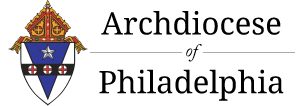A week after arriving in Philadelphia in 2011, I got an email from a very persuasive student inviting me to speak at his school – the University of Pennsylvania. I said yes, and I’m glad I did. It was my first taste of our city’s many excellent universities and colleges, from Villanova and St. Joe’s, to Neumann, La Salle, Holy Family, Immaculata and others.
Penn, of course, is secular and Ivy League. And that made my time with the students there uniquely interesting. Attending a Catholic university may or may not result in a deeper life of faith; but along with providing a good education, the campus environment is usually biased toward a respect for Christian belief. At the leading secular institutions – so often seen as the seedbed of America’s command class — no such friendly bias exists. At schools like Harvard, Yale and Penn, Catholic students who value their faith need to choose it, cultivate it and be fed by adult mentors who excel not just as men and women of faith, but also as scholars of exceptional professional skill.
In my remarks to Penn students I noted that:
“The University of Pennsylvania is one our country’s premier research universities. That’s a great gift to the Philadelphia community. It’s also a great privilege for all of you as students, especially those specializing in the sciences. Science and technology have expanded human horizons and improved human life in vital ways over the last century. They’ve also, at times, done the opposite.
“Part of a good education is learning the skill of appropriate skepticism. And that skepticism, that healthy wariness, should apply even to the methods and claims of science and technology. When a distinguished and thoroughly secular scholar like Neil Postman writes that ‘the uncontrolled growth of technology destroys the vital sources of our humanity. It creates a culture without a moral foundation. It undermines certain mental processes and social relations that make human life worth living’ – then we need to be concerned”. [i]
The task of preserving and enriching “the vital sources of our humanity” goes to the heart of the Christian mission. The Catholic tradition – with its centuries of extraordinary scholarship, art, music, architecture and science – is a song of praise to the God who made us. In the Catholic tradition, we pursue knowledge in order to be free of our own ignorance and pride; we learn about the world in order to experience the beauty of God’s creation and the nobility of our own humanity. And that brings me to the point of this week’s column.
Penn in 2011 was a remarkable university with remarkable students, faculty and standards of excellence. Penn in 2014 is equally remarkable — with one important and very positive addition. Earlier this month, the Collegium Institute for Catholic Thought and Culture at Penn concluded its inaugural year. Started by Catholic Penn graduates, faculty and friends last spring, the Collegium Institute is a free-standing scholarly foundation, independent of the university and the archdiocese, committed both to academic excellence and the Catholic intellectual tradition.
Modeled roughly on the Lumen Christi Institute at the University of Chicago but unique to Penn in its structure and mission, the Collegium Institute describes itself in these words:
“The Catholic intellectual tradition is a reservoir of profound thinking about the synthesis of knowledge. By bringing this tradition into conversation with the secular academy and by encouraging a holistic approach to scholarship that transcends disciplinary boundaries, the Collegium Institute affirms the unifying and truly liberal ends of education – namely, freedom in truth.”
The Collegium Institute is an example of the Catholic lay vocation lived intelligently, respectfully and confidently – for the benefit of Catholics, but also for the enrichment of the academy and general public. It deserves our support within the Catholic community and beyond.
And we need a lot more of the same.
For more about the Collegium Institute for Catholic Thought and Culture, visit collegiuminstitute.org. Information on the Collegium Institute’s latest seminar focusing on Pope Francis’ text, “The Joy of the Gospel,” can be found at http://collegiuminstitute.org/2014/05/this-friday-joy-of-the-gospel/.
[i] Neil Postman, Technopoly: The Surrender of Culture to Technology, Vintage Books/Random House, New York 1993; p. xii
Editor’s Note: Columns will be published each week on www.CatholicPhilly.com and can also be found at https://archphila.org/archbishop-chaput/statements/statements.php.
Contact
Kenneth A. Gavin
Director of Communications
215-587-3747






